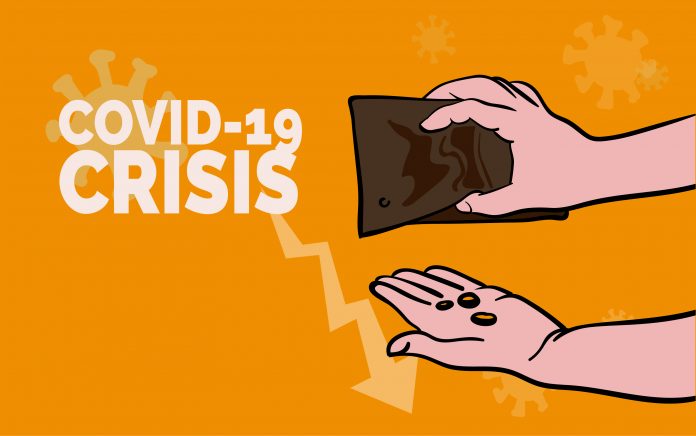Hiren Gandhi, partner at Blaser Mills Law, outlines the government schemes available to help businesses if they find themselves in corporate debt as a result of the coronavirus outbreak
As COVID-19 grinds many businesses to a halt, a contraction in global growth is causing an adverse effect on the economy and financial markets. The scale and speed of the pandemic has caught many off guard, and not only is it causing a serious health threat, but also economic and financial consequences. Businesses may find themselves falling into corporate debt as a result, which can be a very scary prospect.
However, the government is offering help to secure the future of businesses, and to soften the coronavirus financial blow. Here are some of the main government schemes available to help businesses if they find themselves in corporate debt as a result of the coronavirus outbreak.
HMRC ‘time to pay’ arrangement
HMRC time to pay arrangements offer businesses structured payment plans for debt repayment over an agreed period. This usually relates to debt that has built up due to the inability to pay taxes. These are not usually offered out lightly, however, HMRC do understand that in particular circumstances, businesses will need help.
Due to the current pandemic, HMRC are far more likely to be accepting, as it is in the government’s interest to do everything to help businesses survive during this unprecedented time.
In normal circumstances, a time to pay arrangement comes with a 3.5% penalty charge, but the Chancellor, Rishi Sunak, stated in the recent Budget that this will be waived for the duration of the outbreak.
If you wish to discuss your tax payments with HMRC, a new helpline has been made available for business owners to access advice.
Business rates holidays
Business rates are charged on the majority of non-domestic properties and are paid annually to the local council. These rates are calculated based on your property’s annual market rent, its usage and size.
As a result of the pandemic, the government is offering a holiday from business rate payments to all businesses in eligible sectors, meaning these companies will pay zero rates for 2020/2021.
However, business rates holidays are only available for businesses in the retail, hospitality, leisure and childcare sectors in England. It is up to the local council to decide whether a business qualifies. Local authorities will contact your business directly if you are eligible and if you are, your tax bill will be re-issued.
The Coronavirus Business Interruption Loan Scheme (CBILS)
The government has introduced a ‘Business Interruption Loan Scheme’ for SMEs that are losing out on revenue due to coronavirus. The scheme offers loans, asset-based finance and invoice finance to these businesses to help them weather this tough financial period.
You are eligible for the CBILS scheme if your business is based in the UK and you trade primarily in the UK, your application is for business purposes only, you wish to borrow no more that £5 million and your turnover does not exceed £45 million.
To apply for the CBILS, it is important to ensure you have up to date business accounts, a cash flow forecast for the next 12 months, details of any business assets, historical accounts that date back for the last three years, and a business plan that outlines what you will do with the money.
There is a choice of accredited lenders but you need to check that the lender you choose offers the type of finance you need.
The Coronavirus Job Retention Scheme
The ‘Job Retention Scheme’ introduced by the government allows employers to get support to pay employees’ wages and is set to be available to businesses by the end of April 2020.
Employers can claim 80% of their usual monthly wage costs, up to £2500 a month for each individual. They can also claim employer National Insurance contributions, as well as the minimum automatic enrolment employer pension contributions.
For now, the scheme is set to cover the period from 1st March – 1st June, however, this may be extended by the government depending on the UK’s situation.
To be eligible for the scheme, businesses must have started their PAYE payroll scheme on or before 28th February 2020 and be enrolled for PAYE online. Businesses can claim for employees that have been on their payroll since before 28th February 2020, and the employee must be on ‘furlough’. It is important to remember that if an employee has been furloughed, they cannot be engaged in work of any kind for the company.
Statutory Sick Pay
The government has updated the Statutory Sick Pay (SSP) rebate scheme to support businesses that have experienced outlaid SSP due to coronavirus.
Businesses can claim up to two weeks of SSP, and the employee must either have coronavirus or be self-isolating due to coronavirus. Employees do not need to present their employer with a sick note, however, they will need to provide an NHS isolation note, which is available to apply for online.
For a business to be eligible for this scheme, they must have had a payroll scheme since on or before 28th February 2020 and employ less than 250 staff.
HMRC have asked that employers keep a record of why each employee could not work, as well as details around the timings including the start date of the sick pay, and when they returned to work. They also ask businesses to keep track of how many qualifying sick pay days per employee they intend to register, and the National Insurance numbers of each employee needing sick pay.
If you are concerned about corporate debt and need clarification on which help your business is entitled to, it is always recommended to seek advice from an experienced legal professional who will be able to offer further guidance and provide you with the relevant information regarding the government schemes, helping you to reach the best outcome.











